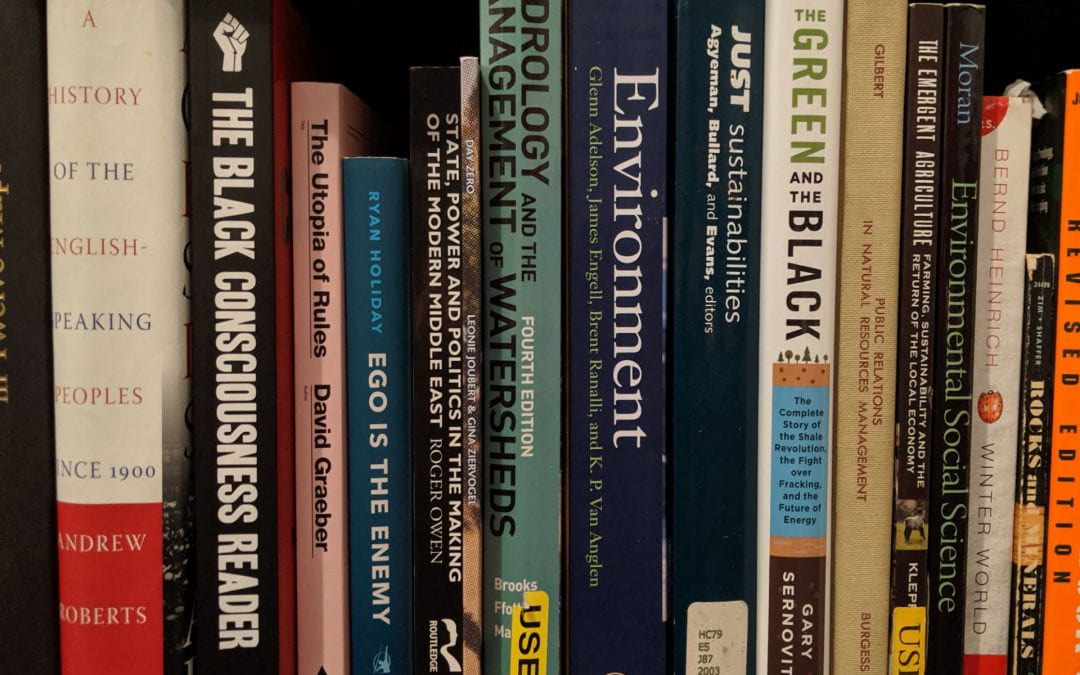By Ryan Novak
Most students being educated about the environment are familiar with “The Tragedy of the Commons,”1 a term coined by Garrett Hardin. In his 1968 article of the same name, Hardin urges the necessity of population control as a solution to prevent the destruction of open-access common pool resources.
“…That this idea of a multiethnic society is a disaster.”
The publication continues to act as a model for the discussion over the efficiency of resource management methods— but how many students are familiar with Hardin’s position “…that this idea of a multiethnic society is a disaster.”2 Granted, most things taken out of context can seem pretty bad. In this case however, even in context, Hardin’s words sound alarmingly racist.
The core message to come from Hardin’s ambiguously ill-defined idea of the commons is that “the freedom to breed is intolerable.” Hardin also stated:
“There seems to be little danger of society’s being deprived of something valuable by the sterilization of all feeble-minded individuals.”3
When removing the shroud, and shining a light on Hardin’s racist ideologies, the motivations of his poorly laid argument surrounding the commons begin to come into question. The sinister nature of Hardin’s work becomes ever more apparent when learning that Hardin was a signatory of “Mainstreet Science on Intelligence,” an editorial published in the Wall Street Journal in 1994. The editorial “…concludes, for example, that differences in intelligence exist, can be measured fairly, are partly genetic (within races), and influence life outcomes.”
Now begs the question, “Who’s freedom to breed is intolerable?”
I am not one to suggest that any scientific contribution be discounted solely on the questionability of morality… or obvious lack thereof. Harvard historian Naomi Oreskes said is best when speaking of American abolitionists: “[They] wore clothes made of cotton picked by slaves. But that did not make them hypocrites … it just meant that they were also part of the slave economy, and they knew it. That is why they acted to change the system, not just their clothes.”
In that light, I believe Hardin’s argument surrounding the commons is a poorly laid straw man argument. “Hardin’s argument is sociologically naive. He ignores the emergent and self-regulating nature of social organizations in response to such challenges.”5 states Dr Appell, . He goes on to suggest that Hardin’s article “has been embraced as a sacred text by scholars and professionals in the practice of designing futures for others and imposing their own economic and environmental rationality on other social systems of which they have incomplete understanding and knowledge.”5 Not only is the author of “The Tragedy of the Commons” recognized by the Southern Poverty Law Center as a well-documented white supremacist, but his arguments don’t even hold up to the standards of peer reviewed scientific literature.
Moreover, in 2009, Elinor Ostrom won the Nobel prize in economics by demonstrating how local property can be successfully managed by local commons without any regulation by central authorities or privatization. In her publication “Revisiting the Commons: Local Lessons, Global Challenges;”6 Ostrom illustrates the old viewpoints surrounding the commons, addresses their shortcomings, and advances the discussion on the management of common-pool resources.
So, why is Hardin’s work still used to facilitate discussion in environmental education?
- Hardin, G. (1968) The Tragedy of the Commons. Science, 162(3859), 1243-1248.
- Staub, C. (1997) Living in a World of Limits. The Social Contract Press, 8(1)
- McLaren, A. (1986). The creation of a haven for “human thoroughbreds”: the sterilization of the feeble-minded and the mentally ill in British Columbia. Canadian Historical Review, 127.
- Gottfredson, L. S. (1997). Mainstream science on intelligence: An editorial with 52 signatories, history, and bibliography.
- Appell, G. N. (1993). Hardin’s Myth of the Commons: The Tragedy of Conceptual Confusions. Social Transformation and Adaptation Research Institute.
- Ostrom, E., Burger, J., Field, C. B., Norgaard, R. B., & Policansky, D. (1999). Revisiting the commons: local lessons, global challenges. science, 284(5412), 278-282.

